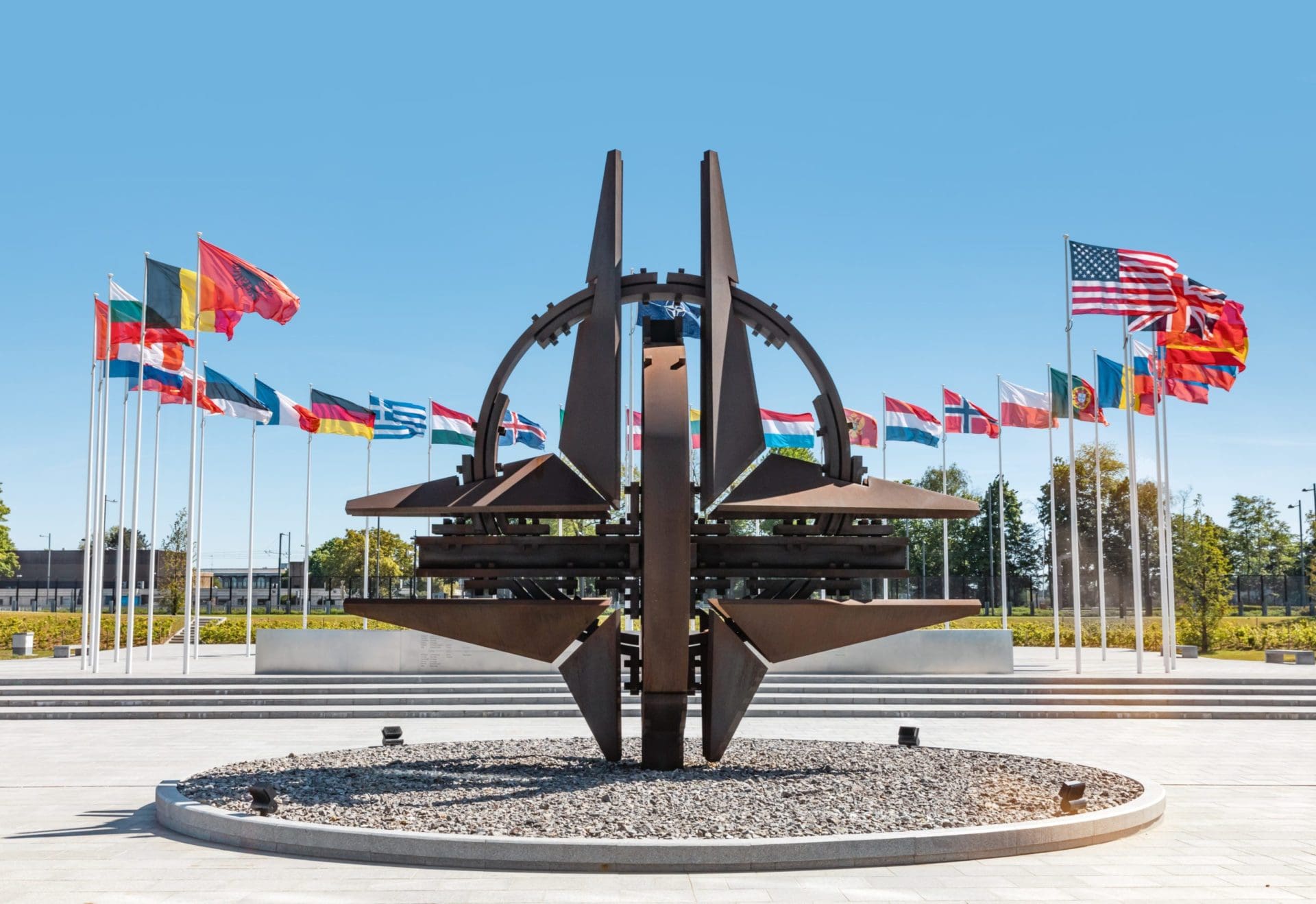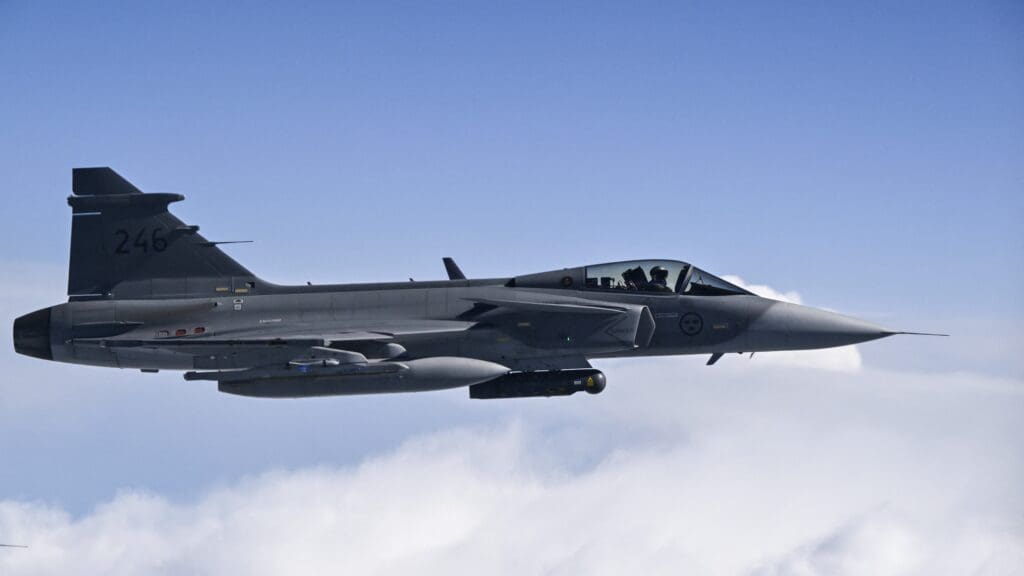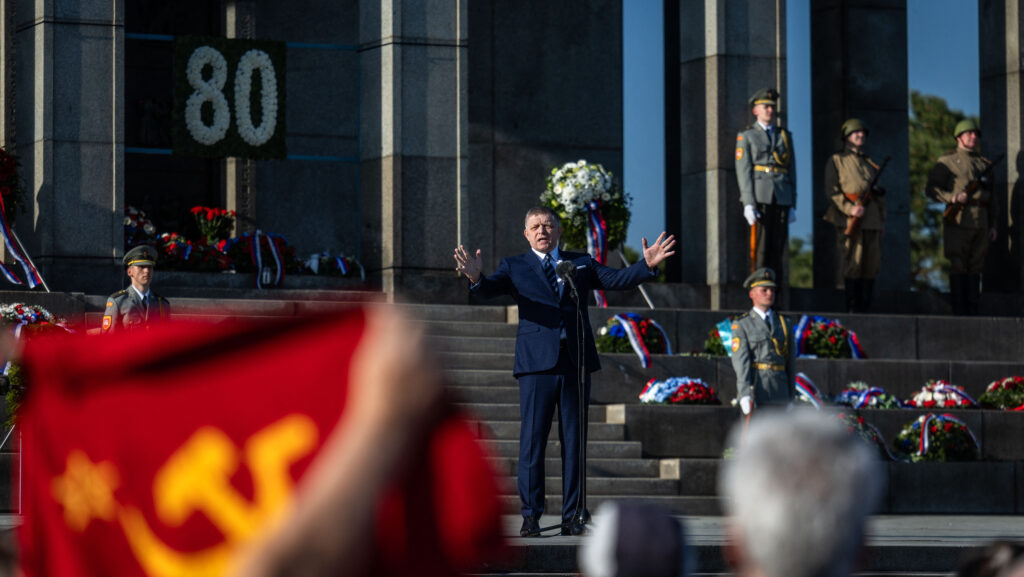The thirty-member states of the North Atlantic Treaty Organisation (NATO) decided last Friday that notwithstanding the ongoing onslaught by Russian Federation troops in Ukraine, they are unwilling to get directly involved in the conflict—including setting up a no-fly zone.
While Ukraine is not a member of NATO, in 2021, the Ukrainian government adopted a National Security Strategy with the goal to further develop its NATO partnership, which Kyiv had enjoyed since 1992.
Many argue, US President Joe Biden in particular, that since Ukraine is not a member of the alliance, NATO troops are under no obligation to directly engage Russian soldiers in Ukraine. Is such a decision by the NATO high command in line with or a betrayal of its mission to protect other nations that are not yet full members?
NATO’s Unclear Mission
NATO was created in 1949, in order to promote democratic values and enable members to consult and cooperate on defence and security-related issues to solve problems, build trust and, in the long run, prevent conflict. But, above all, the alliance was established as a collective defence mechanism against the Soviet Union, with the provision of Article 5 of the Washington Treaty that any attack on one NATO country was considered an attack on all, and therefore required a collective response.
The irony is that from its very outset, when African countries were still under the yoke of European colonialism—specifically under the governance of the United Kingdom, France, Portugal, and Belgium—NATO exploited those Third World nations, keeping them underdeveloped. As historian and political activist Walter Rodney put it in his 1972 book How Europe Underdeveloped Africa:
‘When most Africans were still colonial subjects, they had absolutely no control over the utilisation of their soil for militaristic ends. Virtually the whole of North Africa was turned into a sphere of operations for NATO, with bases aimed at the Soviet Union…. The colonial powers actually held military conferences in African cities like Dakar and Nairobi in the early 1950’s, inviting the whites of South Africa and Rhodesia and the government of the USA. Time and time again, the evidence points to this cynical use of Africa to buttress capitalism economically and militarily, and therefore in effect forcing Africa to contribute to its own exploitation.’[1]
The US has increased its imperialist domination of the globe through NATO, including the establishment of US military bases in strategic areas of the world
When the Iron curtain fell in 1991, the Western and Eastern European countries pushed to unite in the area of values, such as liberty, democracy, human rights, the elimination of poverty, the free market and the strategy of development. Since NATO was founded with the purported purpose of halting possible Soviet aggression and stopping the spread of Communism, it had appeared that there would no longer be a need for such an alliance. Since then, however, the US has increased its imperialist domination of the globe through NATO, including the establishment of US military bases in strategic areas of the world.
Washington’s policy became one of destabilising the Russian Federation and undermining its integration with Europe, while at the same time it sought to control Eurasia’s natural resources. In fact, NATO has played a critical role in every US war since 1991.
NATO’s Proxy Wars
One of the alliance’s US-proxy operations was assisting in the dismemberment of Yugoslavia in 1999. A more salient covert operation, the invasion of Afghanistan in 2001, was the first time NATO invoked Article 5 to justify its engagement.
This occurred in the aftermath of al-Qaeda’s attacks against the US on 11 September 2001. However, neither of the two missions the transatlantic alliance undertook in Afghanistan—the International Security Assistance Force (ISAF) and Resolute Support—were Article 5 missions.
The suggestion that the security alliance invoke Article 5 for the first time in its history was made by members of the North Atlantic Council, NATO’s governing political body, in Brussels on 12 September 2001. However, some Bush administration officials, including Secretary of Defence Donald Rumsfeld, were reluctant to involve NATO in the US response to the attacks. According to Sara Bjerg Moller, an assistant professor at Seton Hall University’s School of Diplomacy and International Relations, one former US official told her that Rumsfeld had worried that having NATO invoke the self-defence clause would restrict the US government’s ability to ‘call the shots about what was going to happen.’[2]
Another concern arose over the precedent that invoking Article 5 could have set if US authorities subsequently determined that the attack had originated from within the US and not from abroad. The Bush administration worried that the US could then be asked to intervene against domestic terrorist attacks in NATO member states in the future. After concluding that the attacks originated outside American terrain, it then took substantial work on the part of US Ambassador to NATO Nicholas Burns to convince other Bush administration officials that having the NATO alliance formally invoke the mutual defence clause was essential to its operations in Afghanistan. NATO officially invoked Article 5 on 4 October 2001, which paved the way for NATO allies sending Airborne Early Warning and Control Force aircraft (commonly known as AWACS) to patrol US skies and offer other assistance, such as intelligence sharing, to Washington.
In another, highly contested, engagement in 2011, NATO was apparently called upon to give cover and aid to Islamic fundamentalists to assassinate Colonel Muammar Gaddafi and oust the independent government of Libya.[3] Libya’s social system, which provided free healthcare, education, and numerous rights to women and for all Libyans, was effectively destroyed.
So the questions arises: if NATO has already been militarily involved in non-member countries at the behest of Washington, why is it reluctant to assist Ukraine with anything but with arms provisions?
Why is NATO Refraining from Invoking Article 5 after Putin’s Invasion?
The alliance is simply not prepared to do anything that could be interpreted as a direct act of war on Russia
One of the reasons NATO is extremely reluctant to become directly involved in the Ukraine conflict is that it is dealing with a heavyweight rival in the person of Russian President Vladimir Putin. The alliance is simply not prepared to do anything that could be interpreted as a direct act of war on Russia, and risk an escalation that could lead to the use of nuclear weapons.
There is also another factor that determines why the US-NATO alliance will not invoke Article 5 as it had done in the case of Afghanistan. It is President Joe Biden’s weakness and lack of strategy, which has not only diminished America’s role as the “leader of the free world,” but he has also handicapped Europe in confronting Russian aggression.
Former US House Speaker Newt Gingrich recent remarks sum up well the gist if the matter:
‘Biden punishes the American oil and gas industry—while [until at least this past week]—buying from Russia and subsidising Putin’s military adventure (far more than any sanctions will cost Putin). Biden refuses to build liquified natural gas ports to help the Europeans quit using Russian natural gas. Biden is refusing to help Ukraine with targeting information, because it might be an escalation (when you watch a nuclear reactor burning and cities being bombed [as the Russians did in Zaporizhzhia], only a bunny can be worried about escalation). Finally, Biden is relying on the Russian Ambassador in Vienna to get the Iranians to agree to a terrible American collapse on the Iranian nuclear weapons program. So, the powerful bear [Russia] and the brave lion [Ukraine] are fighting, while the timid bunny is pretending everything will be fine.’[4]
[1] Walter Rodney, How Europe Underdeveloped Africa, Dar-Es-Salaam, Bogle-L’Ouverture Publications, 1973, p. 314
[2] Sara Bjerg Moller, ‘Five Myths About NATO and Afghanistan,’ Lawfareblog.com, 2021, https://www.lawfareblog.com/five-myths-about-nato-and-afghanistan, accessed 11 March 2022.
[3] Admin, ‘Leaked information of Hillary Clinton Emails Revealing how NATO Killed Muammar Gaddafi to Stop the formation of a United States of Africa,’ Observerstimes.com, 2022, https://observerstimes.com/2022/01/17/leaked-information-of-hillary-clinton-emails-revealing-how-nato-killed-muammar-gaddafi-to-stop-the-formation-of-a-united-states-of-africa/, accessed 11 March 2022.
[4] Newt Gingrich, ‘The Bear, the Lion and the Bunny Rabbit,’ Tennesseestar.com, 2022, https://tennesseestar.com/2022/03/07/commentary-the-bear-the-lion-and-the-bunny-rabbit/, accessed 10 March 2022.








